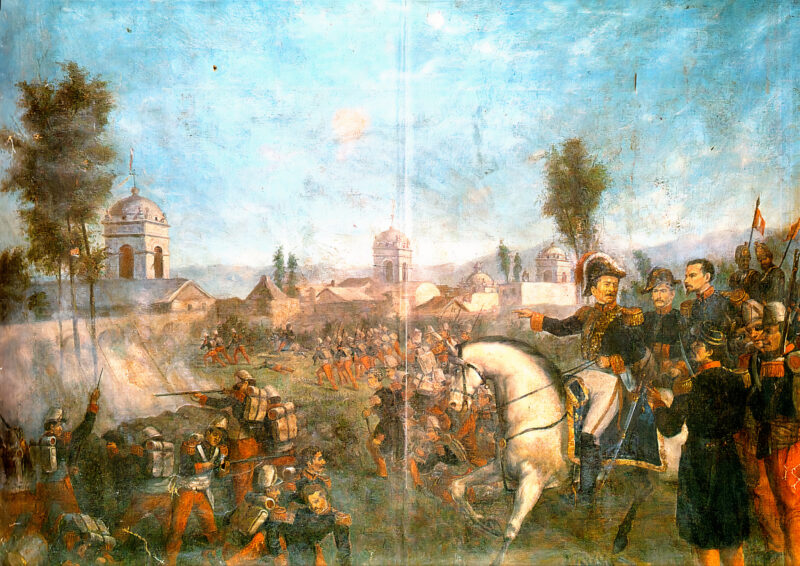
The Many South Carolinas in the Americas
In recent years, the transnational turn in Civil War scholarship has finally started to include Latin America. While Mexico with the French-Mexican Conservative Alliance has long attracted a significant amount of scholarship, the rest of Latin America has not. Recent works by Evan Rothera and James Sanders offer glimpses into ...
Read More
Read More
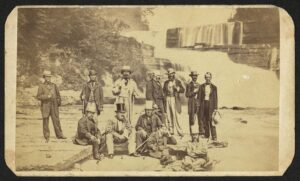
Civil War Historians and Terminology: Diplomatic History
As historians of the Civil War era, we are all extremely familiar with the growing desire of using appropriate terminology in our scholarship and the pushback that such terminological changes have brought. We saw this when the Army University Press abandoned the term “Union” in its publications.[1] Slavery scholars had ...
Read More
Read More
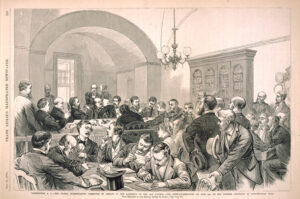
Challenging Exceptionalism: The 1876 Presidential Election, Potter Committee, and European Perceptions
In May 1878, the House of Representatives appointed Representative Clarkson N. Potter (NY-12) to investigate claims of fraud during the 1876 election. The commission, as Adam Fairclough untangles in his new book, uncovered massive wrongdoing on both sides, including so-called bulldozing by Louisiana Democrats, Republican election theft, and attempts to ...
Read More
Read More
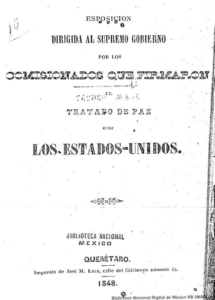
The First Lost Cause: Transnational Memory
The study of Civil War Memory has grown exponentially over the past decade. While Civil War history in general has taken a small transnational turn, memory studies continues to lag behind in that regard. Michael J. Turner’s 2012 work served as an early attempt for its exploration of the image ...
Read More
Read More

Disney and Battlefields: A Tale of Two Continents
In the United States, significant portions of land have been set aside for battlefield parks to commemorate the actions of past generations and interpreted these spaces with regard to how they have shaped the present. In turn, as Edward Linenthal has argued, they became sacred ground.[1] As a result, some ...
Read More
Read More

Civil War Macon
On July 31, 1864, Mary Ann Lamar Cobb, the wife of the local rebel commander, Howell Cobb, wrote her mother: “A bomb fell behind the Ocmulgee Hospital right across the street and a ball or a bomb one or the other struck the in front of Mr. Holt’s house and ...
Read More
Read More
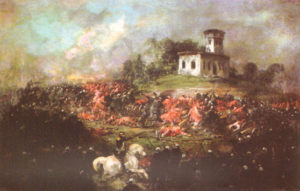
The War of the Rebellion a European-style War?: Latin American Comparisons
The War of the Rebellion in North America has brought forth a massive number of studies in military history. Very few of them are comparative in nature.[1] In addition, there does not seem to be a corresponding scholarly interested in the many civil wars and revolutions in Latin America during ...
Read More
Read More
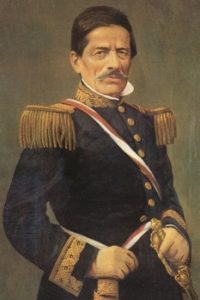
Emancipation in War: The United States and Peru
On September 22, 1862, a week after the devastating Battle of Antietam/Sharpsburg, U.S. President Abraham Lincoln issued his Preliminary Emancipation Proclamation. Delivered by the lawyer-turned-politician, Lincoln emphasized the reunification of the country, but also set new precedents for the emancipation process. Wartime emancipation proclamations were not unusual. When the gaze ...
Read More
Read More

The Lost Cause in the Children’s Room: Toys and Memory
My first conscious exposure to the American Civil War came sometime in the seventh grade when Kabel 1 showed Gettysburg on May Day. As a child, whose parents had watched many Western movies, this film created a fascination with the conflict in North America. In the following week, I tried ...
Read More
Read More
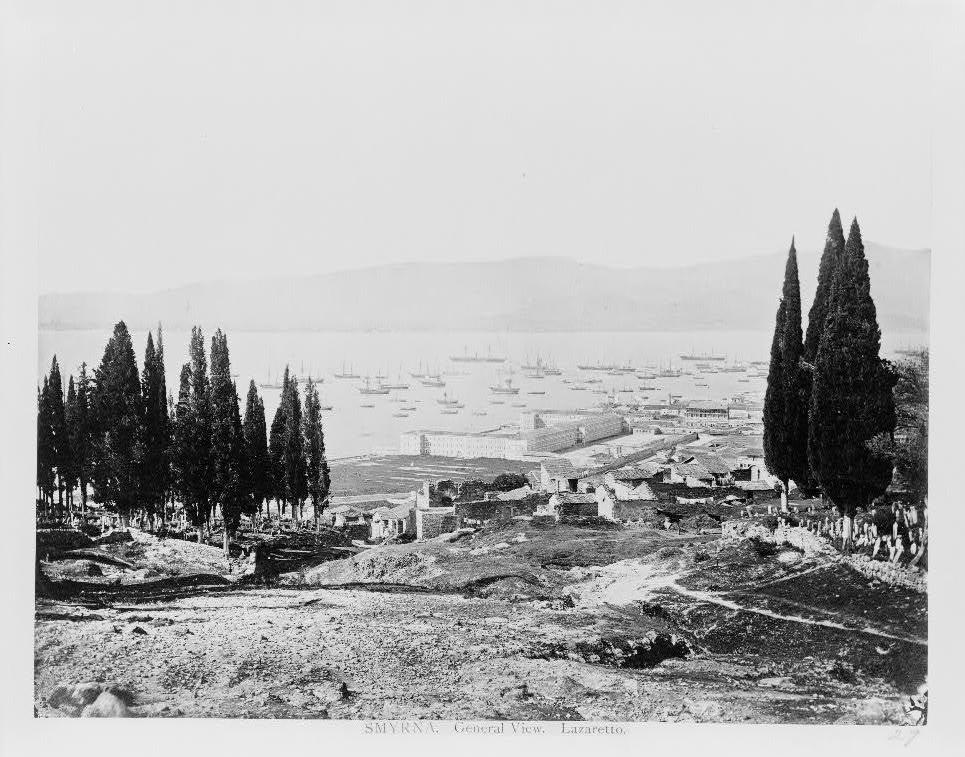
Defending Residents Abroad: The Almost Abduction of Martin Koszta in Smyrna
Since 1950, the United States has maintained the Sixth Fleet in the Mediterranean, headquartered today in Naples, to protect U.S. interests. The fleet has been instrumental in recent struggles against ISIS. However, the U.S. presence in the Mediterranean is as old as the country. Thomas Jefferson had dispatched ships to ...
Read More
Read More
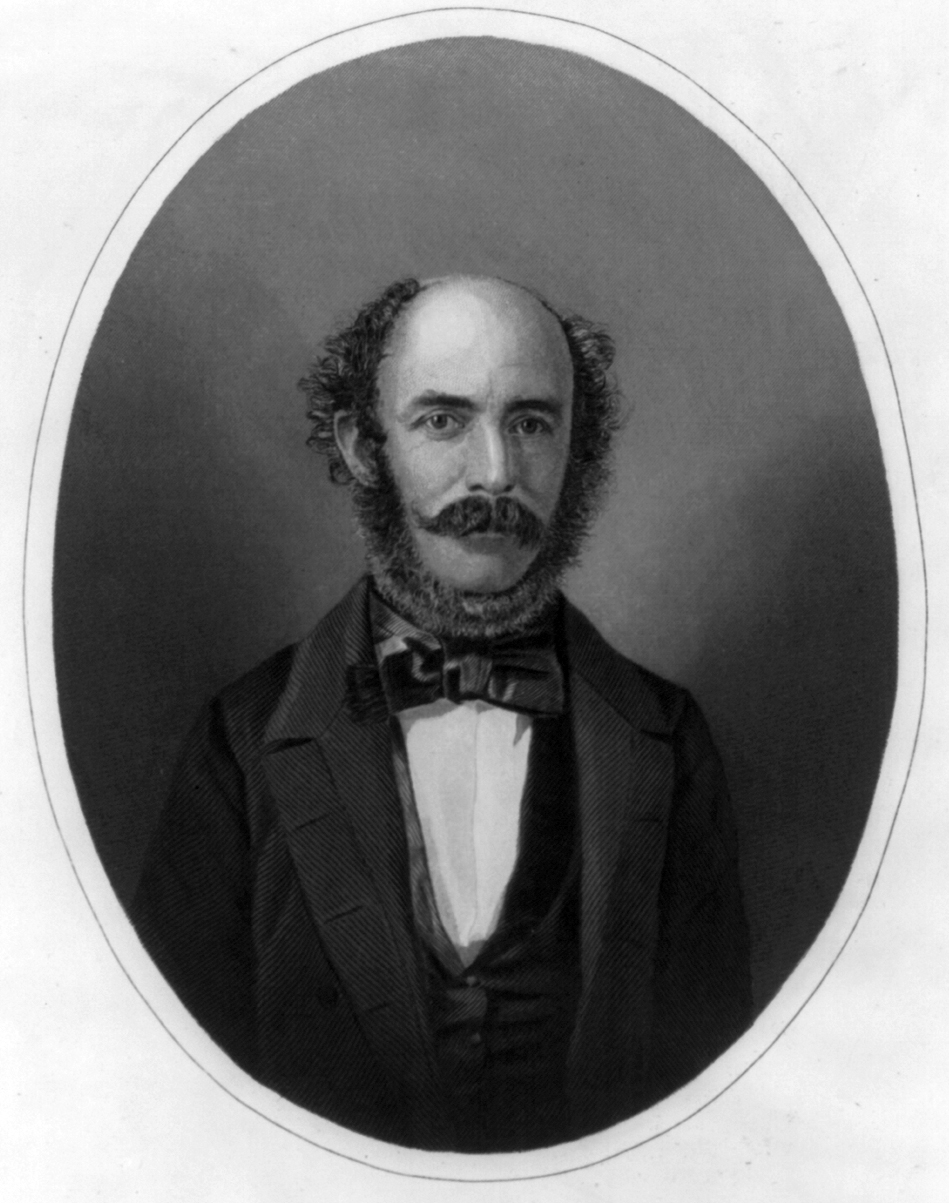
An Anti-Filibuster Alliance: Latin America and Opposition to U.S. Expansionism
When we think of a filibuster today, we likely think of the increasingly disappearing action by a Senator to hold up a piece of legislation by continued speech; however, in the mid-nineteenth century, filibusters were military strong men who desired to project and expand U.S. power into the Caribbean. The ...
Read More
Read More

The Civil War in Southeast Asia: Trade and Privateering in Singapore
The sectional conflict in North America coincided with vast upheavals around the world, including the wars of unification in Central Europe (Italy from 1859 to 1871, and Germany from 1864 to 1871), whose impact Civil War historians have done some work to illustrate. In Asia, the Taiping Rebellion (1850-1864), with ...
Read More
Read More
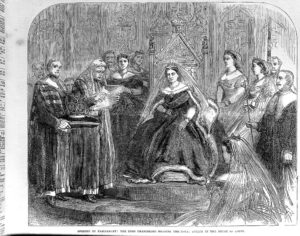
Queen Victoria’s Speeches to Parliament: The Role of the Civil War in British Politics
At the opening of each Parliamentary session, the British monarch delivers a policy statement crafted by the Prime Minister, explaining the cabinet’s plans for the forthcoming sitting of Parliament. With Parliament prorogued until October 14, 2019, when Queen Elizabeth II is supposed to read Prime Minister Boris Johnson’s agenda to ...
Read More
Read More
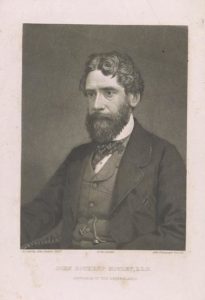
Secession and Slavery in Great Britain II: John Lothrop Motley and the Causes of the Civil War in The Times of London
To read Part I of my analysis of this debate, click here. Part I discusses two articles by Cassius Clay, an antislavery Kentuckian and U.S. Minister to the Russian court, and Edwin DeLeon, a secessionist and former U.S. minister to Egypt. British neutrality inspired Clay and DeLeon to present their ...
Read More
Read More
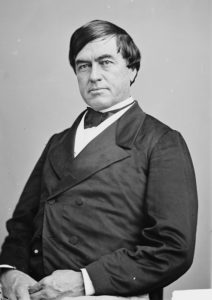
Secession and Slavery in Great Britain: Cassius Clay and Edwin DeLeon debate in The Times of London
On May 13, 1861, Queen Victoria announced Great Britain’s neutrality in the Civil War, which raised Southern hopes of recognition and Northern fears of the same. The Queen’s proclamation and public reaction to the outbreak of hostilities were the result of long-standing assumptions about the sectional division in the United ...
Read More
Read More

“Jack My Dear,-Where the devil are you?” John Lothrop Motley, Otto von Bismarck, and the Civil War
Historians have rarely examined the German States’ reactions to the Civil War. Much has been said about German immigrants fighting in the war, German-American political leaders involved in community and political organization, and the nativist backlash in the United States; however, Central Europe’s perspectives are a blank page in English ...
Read More
Read More
